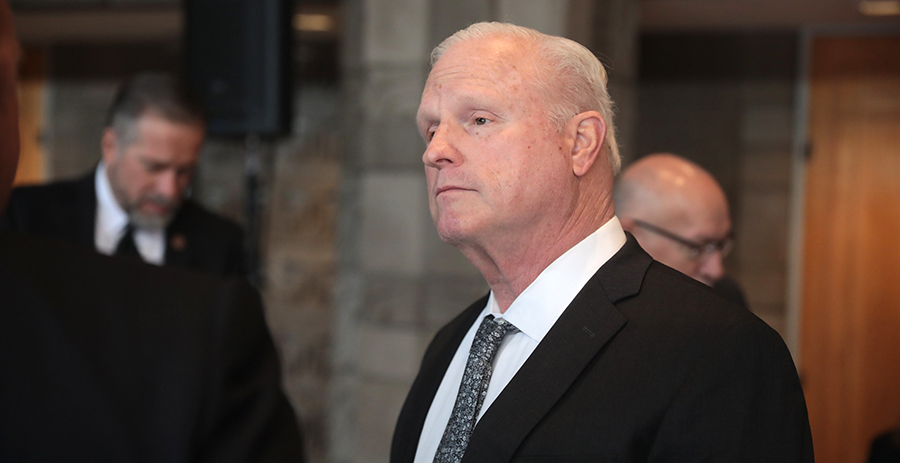Democratic Gov. Katie Hobbs may get a chance to name three justices to the Arizona Supreme Court.
Robert Brutinel, who had been named to the court in 2010 by then-Gov. Jan Brewer, announced Tuesday he is going to retire at the end of October. That announcement starts the process of screening applicants to take his place.
But the move comes as two other justices are fighting to remain on the court: Clint Bolick and Kathryn King, both of whom were tapped by Doug Ducey, Hobbs’ Republican predecessor.
Both are required under current constitutional provisions to stand for election in November on a retain-or-reject basis if they want a six-year term.
In the history of what is known as the “merit selection” process, no Supreme Court justice has ever been removed from the bench in that way.
This year, however, there are several organized efforts to convince voters to oust them, at least in part over having been in the majority in the court’s 4-2 decision earlier this year ruling that the state can enforce its 1864 law that makes it a crime for a doctor to perform an abortion except to save the life of a woman.
That ruling ended up being legally moot as the Legislature voted narrowly to repeal the old law. That left the law here at allowing the procedure until the 15th week of pregnancy.
And while voters are being asked to approve Proposition 139 with an even more expansive right to abortion, nothing that occurs with the future of Bolick or King – or even the retirement of Brutinel – could change that.
What it would do, however, is alter the balance of power on the seven-member court.
One of the justices who voted against reinstating the territorial-era law is Ann Scott Timmer. She is now the chief justice, taking over earlier this year from Brutinel.
Strictly speaking, Hobbs doesn’t get to choose whoever she wants.
Unlike the federal process where a president chooses subject to Senate confirmation, Supreme Court applicants are screened by a special panel. They then send a list of at least three nominees, which, by law, cannot be made up only of those from one party, to the governor who must choose from that list.
That choice is final, with no Senate confirmation.
The thought of a court with three Hobbs picks and Timmer has generated a campaign organized by Randy Kendrick, the wife of Arizona Diamondbacks owner Ken Kendrick, to convince voters to keep Bolick and King on the bench.
In a fundraising letter, Kendrick said “liberal groups” already have succeeded in clinching the posts of governor, secretary of state and attorney general for Democrats. She also pointed out that Republicans hold the majority in the House and Senate by only one vote in each chamber.
“These same groups now have set their sights on the Arizona Supreme Court,” Kendrick wrote.
Progress Arizona in April announced it was launching a campaign to deny both Bolick and King new terms.
Separately, the National Democratic Redistricting Commission and Planned Parenthood Votes announced in May they intend to spend at least $5 million on supreme court races across the country, with a focus on six states, including Arizona. The reason, they said, is that those courts are crucial to determining whether abortion rights stay in place after the U.S. Supreme Court overturned Roe v. Wade in 2022.
And a new political action committee was announced earlier this month. Dubbed Protect Abortion Rights No Retention Bolick and King, it is focused not just on abortion and the decisions reached by the pair while on the bench but Bolick’s prior history with the Goldwater Institute and King’s work as a corporate litigator.
There also is an effort by groups to convince voters to reject Proposition 137. It would eliminate the requirement for retention elections for most judges. More to the point, if approved in November it would be retroactive, nullifying any votes to remove any sitting judges.
No tags for this post.
(Except for the headline, this story has not been edited by PostX News and is published from a syndicated feed.)

